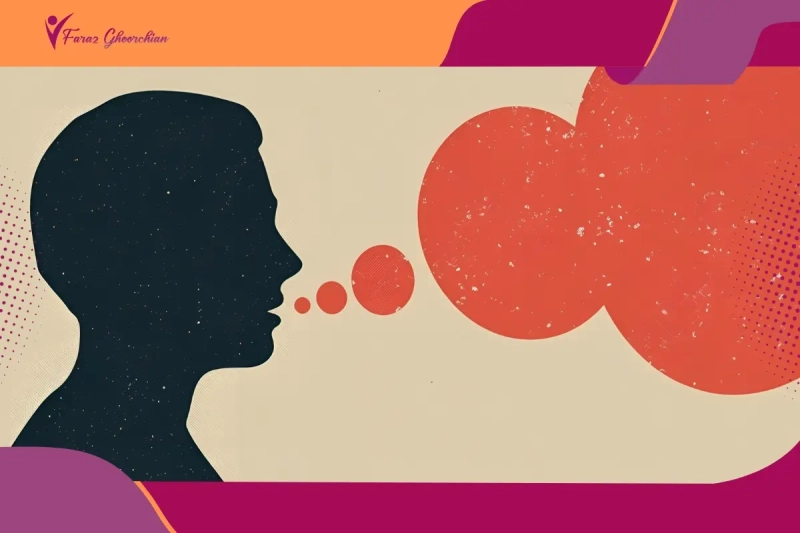- 1. Introduction: Why Link Fasting and Lust?
- 2. Fasting in the Major Religions: Roots of Desire Control
- 3. Scriptural Support: Bible Verses about Lust and Fasting
- 4. The Science: What Happens to Desire When You Fast?
- 5. Dopamine, Cravings, and Self-Control: The Brain’s Response to Fasting
- 6. Fasting in Islam: Sexual Control, Ramadan, and Everyday Life
- 7. Fasting for Teens: Building Self-Discipline Early
- 8. Beyond Food: Lifestyle Habits That Boost Lust Control
- 9. Mindfulness, Meditation, and Chastity: Tools that Complement Fasting
- 10. Fasting, Semen Retention, and Ancient Traditions
- 11. Can Fasting Help in Modern Addiction? Porn, Social Media, and Desire
- 12. Practical Steps: How to Reduce Sexual Urges Naturally
- 13. Conclusion: Is Fasting a Reliable Path to Lust Control?
- 14. FAQs
Introduction: Why Link Fasting and Lust?
Most of us have wrestled with our own desires at some point, searching for ways to gain a little more self-control. For centuries, people have tried using fasting as a tool to quiet strong urges and focus their minds. It’s no wonder the question pops up so often: Does fasting help control lust? From stories in religious texts to new research about hormones, the connection is still debated. When we look at fasting and lust across religions, it becomes clear that many spiritual paths have turned to fasting as a way to manage desire. Exploring this link gives us a fresh look at how faith and science sometimes meet.
Fasting in the Major Religions: Roots of Desire Control
It’s fascinating to see how fasting plays a role in different faiths as a practical way to keep desires in check. In many Christian communities, especially during Lent, people turn to fasting in Christianity to control lust and to explore what it means to practice real self-restraint. Personal stories often reveal how these fasting periods can be a chance to step away from temptation and reconnect with core values.
Within Islam, fasting and sexual control are closely linked, especially during Ramadan. The entire month is shaped by discipline and conscious choices, and many Muslims talk about how fasting helps them build stronger willpower and patience. The Catholic view on fasting and chastity highlights the long-term benefits of self-mastery, while in Hindu traditions, Brahmacharya and fasting encourage followers to channel their energy into spiritual growth. Buddhism takes a similar path, using fasting to break the hold of sensual desires and cultivate mindfulness. In many of these traditions, the psychological effects of fasting on desire are just as important as the spiritual ones, showing how deeply the practice influences both thought and behavior. These traditions show that the relationship between fasting and lust is both ancient and surprisingly relevant today.
Scriptural Support: Bible Verses about Lust and Fasting
Whenever I hear people talk about struggles with desire, it is common to hear someone recall a meaningful verse or story from the Bible. For those who ask, does fasting help control lust?, the journey often starts with scripture. Many turn to Bible verses about lust and fasting such as Matthew 6:16-18, which encourages private and sincere fasting, and 1 Corinthians 7:5, which suggests that couples use prayer and fasting to resist temptation. In times of struggle, these verses show why fasting in Christianity to control lust is a long-standing practice. It is not just about self-denial, but about seeking strength, focus, and support from faith.
The Science: What Happens to Desire When You Fast?
Ask anyone who has tried a true fast, and you will hear stories about how their mind and body shift in surprising ways. Some people notice their cravings drop after a day or two, while others find old habits suddenly easier to resist. Scientists have started to explore does fasting help control lust?, looking at both physical and emotional changes. For instance, there is real curiosity around studies on fasting and libido, especially when it comes to how our hormone levels behave. Some men see a dip in fasting effects on testosterone, while women sometimes report a calmer emotional state. These changes are not dramatic for everyone, but they can open the door to new self-awareness.
What really grabs researchers is the link between fasting and dopamine regulation. Since dopamine is the chemical that fuels our need for reward, stabilizing it through fasting can take the edge off sudden urges. It feels less like battling temptation and more like gently steering yourself. Over time, this practice of self-discipline through fasting can turn into something much more powerful than just going without food—it becomes a way to reset your relationship with desire itself.
Dopamine, Cravings, and Self-Control: The Brain’s Response to Fasting
Anyone who has tried fasting for even a day or two knows the brain reacts in strange ways. At first, every craving feels magnified, not just for food but for all sorts of pleasure—including lust. That’s because dopamine, the brain’s reward chemical, is suddenly running on empty. People often ask, does fasting help control lust?, and the answer has a lot to do with this adjustment. As the hours pass, something shifts. Your mind stops jumping at every impulse. Scientists studying fasting and dopamine regulation say that when you ride out those urges, the brain gets better at waiting, not just reacting. Some describe a calm that settles in, where old temptations feel less powerful. Over time, the ability to step back from cravings grows. Those who keep up the practice often find their sexual control feels less like a struggle and more like a quiet strength, built one decision at a time.
Fasting in Islam: Sexual Control, Ramadan, and Everyday Life
For Muslims, fasting in Islam and sexual control are deeply connected, especially during the holy month of Ramadan. Fasting is more than just abstaining from food and drink; it’s also about guarding one’s thoughts, speech, and desires. Throughout Ramadan, believers are encouraged to avoid anything that might spark temptation, seeing this month as a powerful opportunity for self-purification. Many Muslims share how fasting brings a sense of clarity and peace, helping them resist unhealthy urges and build resilience. It is also worth noting that female libido and fasting effects have been discussed in some studies and personal experiences, with women reporting increased emotional clarity and self-control during fasting periods.
Prophet Muhammad’s teachings often highlight fasting as a shield against overwhelming desires. In daily life, these lessons encourage practicing sexual control even outside of Ramadan, promoting patience and respect in relationships. Some Muslims also explore intermittent fasting and libido, noticing changes in desire and focus when fasting regularly throughout the year. The spiritual benefits of fasting are said to last long after the month ends, strengthening self-discipline and creating space for deeper reflection, faith, and personal growth. This approach helps many find balance in both spiritual and everyday struggles.
Fasting for Teens: Building Self-Discipline Early
Adolescence is often filled with new feelings and challenges, especially around desire and self-control. Many families ask how teens can use fasting to fight lust and set healthy patterns for the future. Fasting, even when practiced in small steps, gives young people a way to pause, reflect, and recognize their own strengths. With each completed fast, teens experience a sense of pride and learn how to manage urges with patience and intention. These lessons don’t just end with food. They carry over into school, friendships, and personal choices, making moral discipline through fasting a practical skill that supports lasting confidence and emotional stability as teens grow into adulthood.
Beyond Food: Lifestyle Habits That Boost Lust Control
For many people, learning to control desire means looking far beyond what is on their plate. I have talked with friends who noticed real progress after making simple changes in their everyday routines. Something as basic as taking a brisk walk after work or committing to regular workouts can shift your energy and mood. I personally found that the role of aerobic exercise in reducing sexual arousal became clear when I added more movement to my week. The sense of calm and focus stuck with me even on stressful days.
What you eat is important, too. Choosing meals with more vegetables and healthy fats helped stabilize my mood and made it easier to avoid impulsive choices. Limiting negative influences, like certain online content, is just as key. Even ancient fasting in monastic traditions teaches that self-discipline comes from consistent, intentional habits. Building self-control often comes from the little things: a steady sleep schedule, mindful eating, and supportive relationships. These habits may seem small, but together, they create a strong foundation for managing desire in a natural and healthy way.
Mindfulness, Meditation, and Chastity: Tools that Complement Fasting
A few years ago, I started adding mindfulness exercises for managing lust to my daily routine, and the difference was more noticeable than I expected. Meditation helped me catch myself in those moments when an urge would pop up, giving me a chance to pause and actually choose my next step. Practicing these techniques, I realized that real sexual control is not just about saying no, but about knowing yourself better. Some friends have found meaning in traditional vows of chastity, others just appreciate a little more calm and clarity in daily life. Pairing mindfulness with fasting often creates a sense of balance and self-respect that goes far beyond what either practice offers alone.
Fasting, Semen Retention, and Ancient Traditions
I remember coming across the idea of fasting and semen retention while reading about ancient practices in college. It was surprising how many traditions valued this approach. In Hindu philosophy, Brahmacharya is not just a rule but a whole way of living, aimed at using personal energy for deeper purpose. Friends who have explored Buddhist teachings tell me how monks combine fasting with discipline to gain clarity and let go of attachments. The concept of Buddhist fasting and sensual desire reflects this, focusing on breaking the grip of cravings through simplicity and awareness. Even in early Christian communities, there were stories of people choosing self-restraint as a path to wisdom and peace. It’s interesting to see how these old practices are resurfacing today for anyone interested in real self-mastery and inner focus.
Can Fasting Help in Modern Addiction? Porn, Social Media, and Desire
A few years ago, a close friend told me he was trying fasting as treatment for porn addiction after feeling overwhelmed by constant temptation online. He started by unplugging from screens for a weekend and cutting out anything that fed quick dopamine hits, including certain foods. At first, it felt nearly impossible, but after a few days, he noticed his mind was quieter and the urge to check his phone or seek out stimulation had faded. This approach, often called “dopamine fasting,” is becoming more popular for people who want to reduce sexual urges naturally and take back control from habits that feel addictive. It is not a magic fix, but for some, this intentional pause offers a much-needed reset.
Practical Steps: How to Reduce Sexual Urges Naturally
When I first started looking for advice on how to reduce sexual urges naturally, I quickly learned that the process is different for everyone. What worked for me might look a little different for you, but here are some practical steps that helped in my own life:
- Experimenting with fasting gave me a surprising sense of clarity and control
- Staying active, even if just a daily walk, really helped redirect my energy
- Turning off screens earlier in the evening kept temptation at bay
- I found it useful to check in with a trusted friend whenever urges felt too strong
- Quiet routines like deep breathing or mindful reflection helped me pause and reset
- Practicing self-discipline through fasting gave me more patience than I expected
With time, these habits felt less like rules and more like part of a healthier, more balanced routine.
Conclusion: Is Fasting a Reliable Path to Lust Control?
When I think about the question, does fasting help control lust?, I find the most honest answer is that it depends on the person. I have seen some friends gain real clarity and sexual control by making fasting part of their routine, while others combine it with habits like exercise or mindfulness for the best results. What stands out is that fasting can open the door to deeper self-awareness, and that journey is always personal.
FAQs
1- Does fasting help control lust quickly?
Some people notice a reduction in urges within days, while others find it takes more time and consistency.
2- Is fasting effective for everyone?
Results vary. Fasting often works best when combined with other habits like exercise or mindfulness.
3- How does fasting in Christianity to control lust differ from Islam?
Both traditions use fasting for self-control, but practices and spiritual focus can differ.
4- Can fasting support sexual control long-term?
Yes, many find that regular fasting builds self-awareness and lasting discipline over time.
5- Does fasting have scientific support for managing desire?
Recent studies show fasting may help by influencing hormones and dopamine, leading to better self-control.











